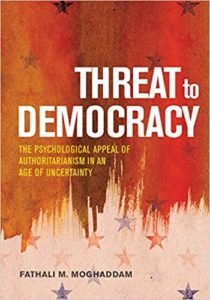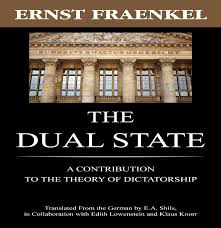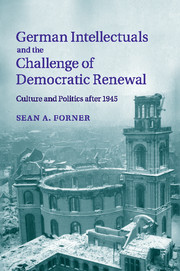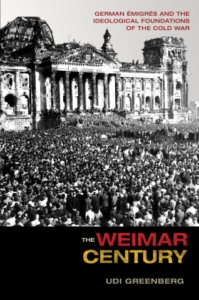 Why and how do authoritarian leaders gain popular support? In his book, Threat to Democracy: The Appeal of Authoritarianism in an Age of Uncertainty, social psychologist Fathali M. Moghaddam argues that “fractured globalization” – technological and economic forces promote global unification, while identity needs draw individuals into tribal identification – can generate a shift toward dictatorship, even in normally democratic societies.
Why and how do authoritarian leaders gain popular support? In his book, Threat to Democracy: The Appeal of Authoritarianism in an Age of Uncertainty, social psychologist Fathali M. Moghaddam argues that “fractured globalization” – technological and economic forces promote global unification, while identity needs draw individuals into tribal identification – can generate a shift toward dictatorship, even in normally democratic societies.
Democratic resilience in large part depends upon an embedded pluralist political culture, according to one influential figure.
Over half a century ago, in 1964, the German political scientist Ernst Fraenkel published his seminal work Deutschland und die westlichen Demokratien (‘Germany and the Western Democracies’), in which he brilliantly articulated a theory of pluralism that addressed the situation of post-war Germany. As Jewish social democrat, he had defended trade unionists as a young lawyer in National Socialist courts, until being forced to flee – first to the UK and then to the US – at the very last minute, in 1938, notes Eurozine’s Simon Garnett.
 Fraenkel’s exposure to Anglo-Saxon political thought enabled him to understand how Germany’s historical failure to establish a democratic political culture had led to the collapse of the Weimar Republic and the rise of Nazism. His model of a resilient liberal democracy was the USA, which he analysed in an influential work published in 1960.
Fraenkel’s exposure to Anglo-Saxon political thought enabled him to understand how Germany’s historical failure to establish a democratic political culture had led to the collapse of the Weimar Republic and the rise of Nazism. His model of a resilient liberal democracy was the USA, which he analysed in an influential work published in 1960.
While the democratic system of government performed well, Fraenkel identified Germany [in books like The Dual State] as an autocratic state of mass culture, in which political reality suffered from a lack of politically-engaged citizens and a commitment to democracy, adds Ikbal Kilic, of the University of Bonn.
 His generation developed a distinctly participatory vision of democratic renewal – a paradoxical counter-elitism of intellectual elites, Michigan State University’s Sean A. Forner argues in German Intellectuals and the Challenge of Democratic Renewal: Culture and Politics after 1945.
His generation developed a distinctly participatory vision of democratic renewal – a paradoxical counter-elitism of intellectual elites, Michigan State University’s Sean A. Forner argues in German Intellectuals and the Challenge of Democratic Renewal: Culture and Politics after 1945.
German émigrés like Fraenkel laid the ideological foundations of post-war democratization, according to Udi Greenberg’s The Weimar Century: German Émigrés and the Ideological Foundations of the Cold War.
“From Weimar they brought comprehensive theories on democracy and its enemies, institutional models for democratic education, and personal histories of living through democracy and its destruction. Many Americans saw these experiences as instrumental to their own quest to strengthen democracy. In the writings and narratives of German émigrés, they found helpful models for democratic renewal,” he writes.
 Central to Fraenkel’s theory of pluralism was a distinction between a ‘controversial’ and an ‘uncontroversial’ realm of politics, Eurozine’s Garnett adds. The former was defined by competition: it was the sphere of parliament, parties and political organizations. Here, the greater the differences, the healthier the democracy. The ‘uncontroversial realm’, on the other hand, was defined by values: human rights, rule of law, equality and political freedom. The existence of this distinction, sealed by a liberal constitution, constituted democracy’s anti-totalitarian premise.
Central to Fraenkel’s theory of pluralism was a distinction between a ‘controversial’ and an ‘uncontroversial’ realm of politics, Eurozine’s Garnett adds. The former was defined by competition: it was the sphere of parliament, parties and political organizations. Here, the greater the differences, the healthier the democracy. The ‘uncontroversial realm’, on the other hand, was defined by values: human rights, rule of law, equality and political freedom. The existence of this distinction, sealed by a liberal constitution, constituted democracy’s anti-totalitarian premise.
Politics could and should be controversial, argued Fraenkel; but to question the principles that allowed these controversies to freely take place was to question democracy as such, he writes for Eurozine (a partner of the National Endowment for Democracy).







